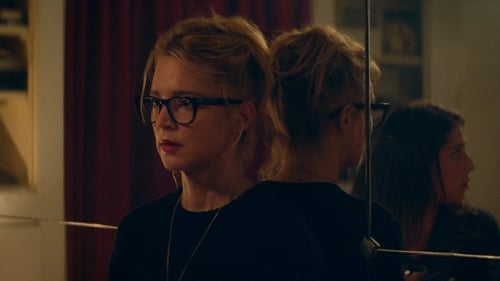Duccio Bellugi-Vannuccini

Prêtre italien
Tralala, un cantante cuarentón que vagabundea por París, conoce una tarde a una joven que le envía un único mensaje antes de desaparecer: "No seas tú mismo". ¿Acaso lo ha soñado? Rápidamente abandona la capital y parte hacia Lourdes en busca de la misteriosa mujer, que solo puede ser la respuesta contemporánea a las apariciones milagrosas de la Virgen María. Allí, el músico se encuentra con una colorida colección de personajes que le ayudan a despojarse de su antigua identidad.

Le producteur italien
Sibyl, una psicoterapeuta hastiada, vuelve a su primera pasión: escribir. Pero su nueva paciente, Margot, una actriz prometedora y problemática, demuestra ser una fuente de inspiración demasiado tentadora. Fascinada casi hasta el punto de la obsesión, Sibyl se involucra cada vez más en la vida tumultuosa de Margot, reviviendo recuerdos volátiles que la enfrentan cara a cara con su pasado.

A film-crew in the early twentieth century, the cabaret known as ‘Le Fol Espoir’ has been transformed into an amateur soundstage. The motion picture tells the story of a ship and its passengers – from the famous opera singer down to the petty criminal. The film is an optimistic political fable intended to educate the masses. There’s comedy aplenty – slapstick punches, custard pies and gags reminiscent of Buster Keaton and Fatty Arbuckle; there’s adventure, high drama moments of great bravura , and passionate love stories. The filming begins on June 28th 1914, the day of the Archiduke Franz Ferdinand’s assassination in Sarajevo, the gunpowder that sets Europe alight. It ends with news of another assassination – that of Jean Jaures on July 31st followed by the general conscription of August 1st, heralded by church bells across France. The allegory of the shipwreck is filmed at breakneck pace during the last five weeks before war breaks out.

Médecin
Irene moves to Paris to begin a new life with her husband Jason and their two daughters, but an act of betrayal and her desire for revenge soon sends her to the brink of madness.

Le Dernier Caravanserail (Odyssées) is a series of stories, scraps of destinies, bits of the lives of men and women – of those "refugees", "illegals" and "migrants" who term themselves, with greater dignity, "travellers". This is a veritable ocean of time-battered odysseys, sometimes heroic, sometimes commonplace, and always dramatic. Initially a work for the theatre, Le Dernier Caravanserail (Odyssées) is now a film. A whole new artistic adventure using the cinema to bring even greater depth to the virtually inexhaustible original material, and intended above all to keep the promise made to those whose stories we are telling: to give them a hearing.

Le Chancelier
Based on the play by Hélène Cixous, filmed in 2002, Tambours sur la Digue is a story written by Hélène Cixous based on an ancient Asian fable about who shall be saved during a flood and presented by live actors as puppets and puppeteers, evoking the theatrical traditions of Japanese Noh and bunraku.





